There Is an Agreement on the Investment Fund but Unresolved Issues Remain
Adelina Marini, May 29, 2015
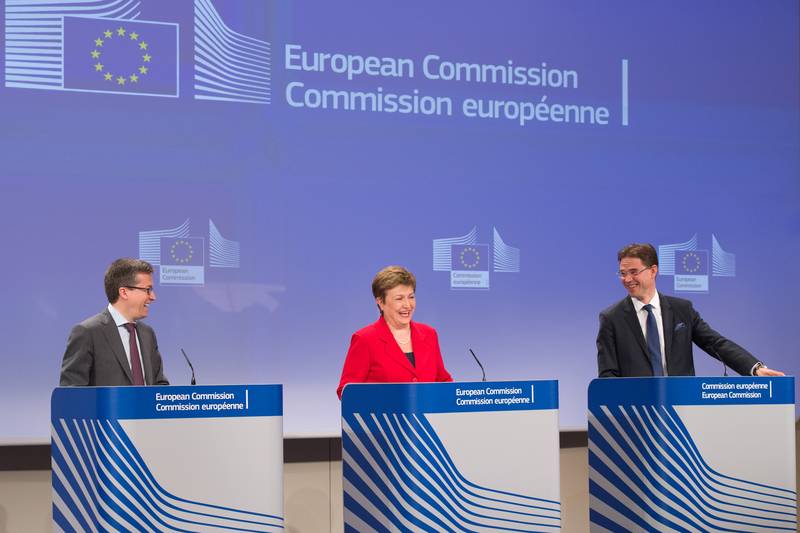 After marathon negotiations that lasted a whole night, early in the morning of Thursday a political agreement was reached between the European Parliament, the Commission and the Council on the establishment of a European Fund for Strategic Investments (EFSI) which is the backbone of the Juncker's investment plan whose main objective is to unleash 315 bn euros of investments in the European economy in the next three years. Some of the most controversial issues received their answer yesterday but many others have remained unclear. Udo Bullmann (Socialists & Democrats, Germany), one of the two rapporteurs of the European Parliament on this dossier, specified that what was agreed on 28 May was a political agreement. The technical details are yet to be cleared. The draft regulation is to be finally approved by both the Council and the Parliament. The voting at first reading is scheduled for 24 June.
After marathon negotiations that lasted a whole night, early in the morning of Thursday a political agreement was reached between the European Parliament, the Commission and the Council on the establishment of a European Fund for Strategic Investments (EFSI) which is the backbone of the Juncker's investment plan whose main objective is to unleash 315 bn euros of investments in the European economy in the next three years. Some of the most controversial issues received their answer yesterday but many others have remained unclear. Udo Bullmann (Socialists & Democrats, Germany), one of the two rapporteurs of the European Parliament on this dossier, specified that what was agreed on 28 May was a political agreement. The technical details are yet to be cleared. The draft regulation is to be finally approved by both the Council and the Parliament. The voting at first reading is scheduled for 24 June.
The funding
All the statements and press releases made it clear that the European Parliament received what it wanted the most - the European budget not to be too much affected by the investment fund. This was a major red line in the position of the MEPs. According to the compromise, a cosmetic change is made in the source of funding for the guarantee fund. The initial proposal of the Commission envisaged 3.3 billion euros to be taken from the Connecting Europe Facility which is aimed at investing in energy, transport and digital networks, 2.7 billion euros from the programme for funding of research and development Horizon 2020 and 2 billion from unused margins in the 2015, 2016 and 2017 budgets.
After the negotiations on Thursday night the "harm" for these programmes will be less. The amount with which the EU budget will participate in the fund will again be 8 billion euros but the two programmes will be drained by less - 2.8 bn euros and 2.2. bn euros respectively. The other three billion euros will be taken from unused margins which, according to the other rapporteur Jose Manuel Fernandez, are completely enough. The deal foresees an extension of the deadline for payments until 2023 which stretches way beyond the current 7-year budgetary framework which ends in 2020. Budget Vice President Kristalina Georgieva (Bulgaria, EPP) explained that this decision was taken to reassure potential investors interested in long-term investments.
She added that the Commission made a commitment during the annual review of the budget to see if it is possible money to be returned to the "harmed" programmes because, as she said, during the negotiations it became clear that everybody loved these two programmes. What remained unclear, however, and is a very important issue for the Council is will the money for the fund be approved on an annual basis. The agreement is not officially published and the press releases do not give an answer to that question. But this is a red line for the Council, as euinside wrote. The finance ministers said that if guarantees were to be approved each year after negotiations with Parliament this would create uncertainty for the investors.
The structure
Another red line for the EP was the danger of politicising of the selection of projects. That is why, a serious compromise was made during the negotiations with the decision the managing director of the fund to be co-appointed by the European Parliament. To avoid politicisation in the steering board of the fund, it was decided its members to come from the Commission and the European Investment Bank only. The member states can participate in the fund with money or through their national promotional banks if they are acting on behalf of the state. In that case, their participation will be considered as an one-off measure which will be calculated in the government's public accounts but will not be taken into account when assessing the budget deficit and the public debt. Third countries can also participate in the financing of the fund but only in cash. It was also decided that contributions to the fund would not 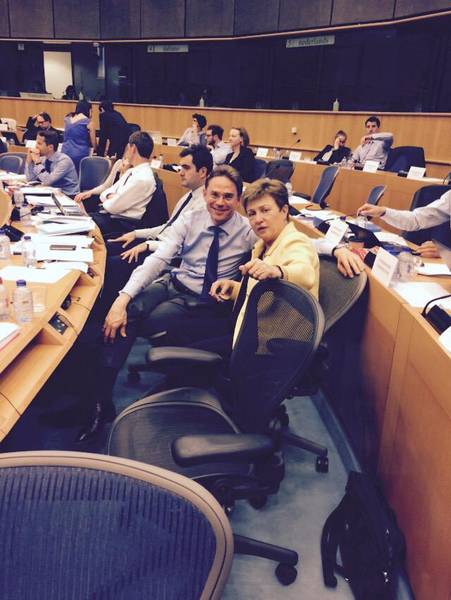 ensure greater or any influence over the management of the fund. This point was left open in the Commission proposal in November.
ensure greater or any influence over the management of the fund. This point was left open in the Commission proposal in November.
Another news from the compromise is that upon Parliament's request a scoreboard mechanism will be created for assessment of projects. However, the final approval remains with the EIB. All participants in the all night negotiations were overly excited during the separate press conferences. According to investments Vice President Jyrki Katainen (Finland, EPP), yesterday was "a very good day for Europe". With praises started her statement Ms Georgieva as well. Her excitement with the good work within the Commission negotiating team caused animation in the press room after she said that she worked very well with her colleague Jyrki Katainen. He decided to joke saying "it was nice waking up next to you" and she answered back that she never fell asleep.
But beyond humour, although an agreement has been reached on the "essence", as Mr Bullmann put it, the negotiations on the technical details will not be easy. And as it is well known, the devil is in the details. That is why, it would be too early to take the champaign bottle out now.
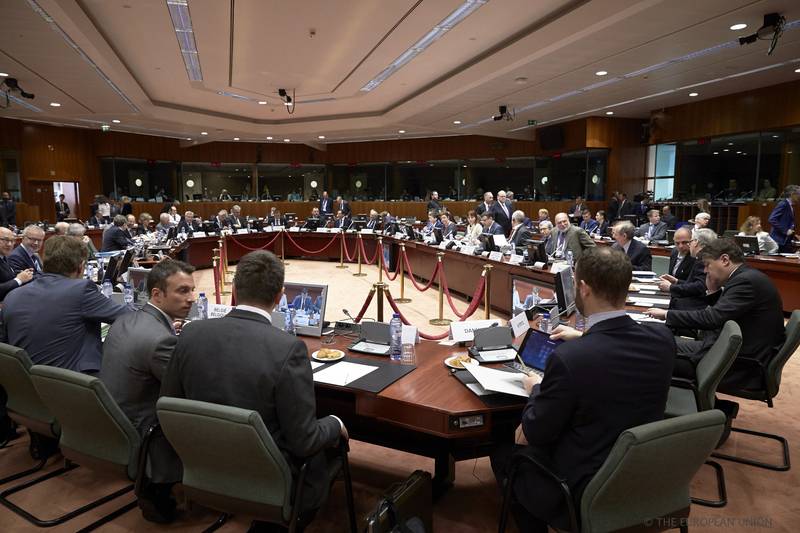 | © Council of the EU
| © Council of the EU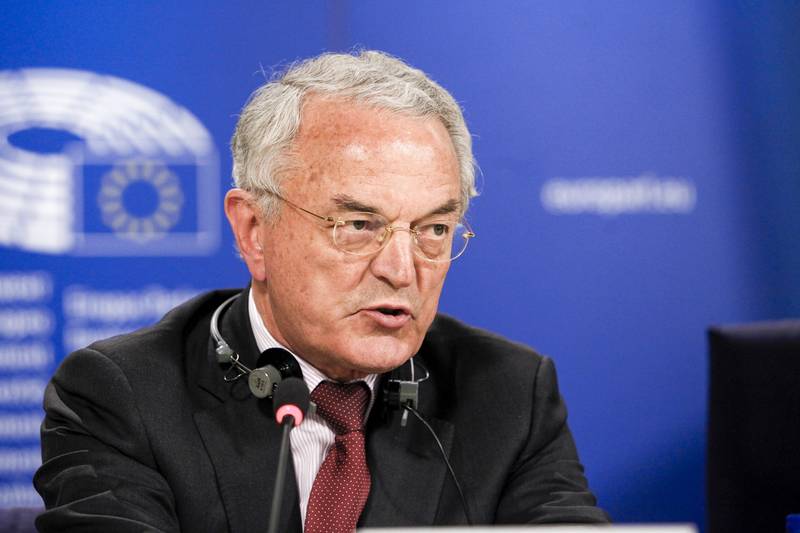 Jean Arthuis | © European Parliament
Jean Arthuis | © European Parliament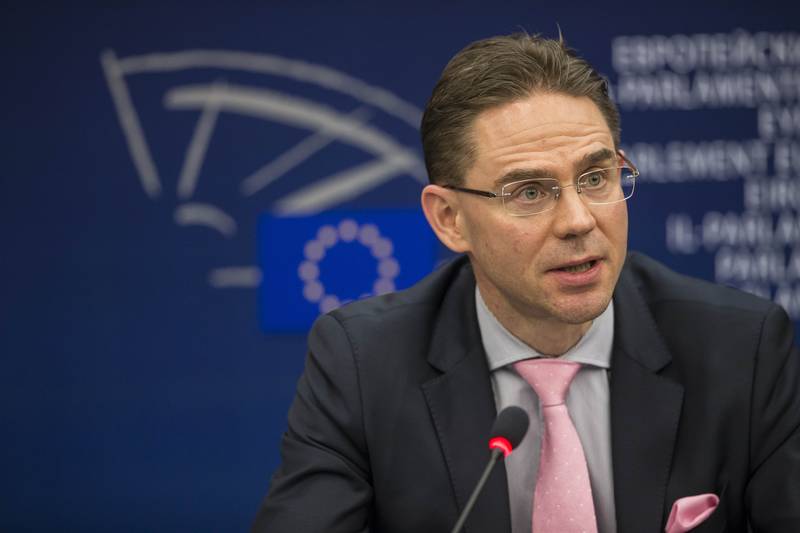 Jyrki Katainen | © European Commission
Jyrki Katainen | © European Commission